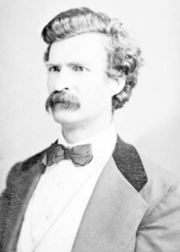Following is the essay you can designate as Volume 10, Number 30 of
This Week’s Clue, based on the e-mail newsletter I have produced since
March, 1997. It would be the issue of July 30.
Enjoy.

Robert Cringely is, rightfully, a legend in tech reporting. But there are times when he just makes me cringe.
His latest PBS column may be the dumbest thing he has ever written.
In it he is describing the same situation I described here a few days ago, Google’s effort to increase the spectrum commons in the coming re-allocation of TV spectrum.
But his conclusion? Stop. Don’t tick off Verizon and AT&T. They will crush you.
Look who Google is up against — all the largest Internet service
providers in the U.S. Google will not win this even if they win the
auction, because the telcos and cable companies are far more skilled
and cunning when it comes to lobbying and controlling politicians than
Google can ever hope to be. The telcos have spent more than a century
at this game and Google hasn’t even been in it for a decade. And
Google’s pockets are no deeper than those of the other potential
bidders.
Cringely, STFU. There are two key reasons why you are absolutely, totally, 100% wrong on this one:
Economically, Google has a larger market cap than
Verizon, and more free cash flow than either Verizon or AT&T. Over
the last year Google’s market cap has improved right along side the two
monopolists. There is no other company in America that can challenge
the monopolists the way Google can, and if it doesn’t it will be
swallowed up, just as so many others have been.- Politically, now is the time for laying down markers. Now,
a year before the crisis election of 2008, is when you should be taking
a stand, introducing the new values of the Internet Generation,
exhibiting the leadership your hard work has earned you. Ted Turner
said it best, "Lead Follow or Get Out of the Way."
I agree that, in this battle, Google will lose. Bush supports
monopolists. Republicans support monopolies. They are far more closely
tied to the present system of Trusts than any of their predecessors
were during the crisis of the 1890s. There is no trust-busting movement
within today’s Republican Party. The Nixon Thesis has purged, purged
and purged some more until it is the Nicole Ritchie of politics, an
anorexic shell of its former self.
Now is the time to hit them.
Google should be doing more of this, not less. It needs to be laying
out its Internet Values, the political and economic myths that have
brought it to this place. It is a shame that you have to be big today
in order to challenge big, but such has always been the case.
(Photo at left by Joseph Haworth.)
The difference, in the 1890s, was that it was politicians who took the lead, the heirs of the Mugwump
tradition. The current Wikipedia definition of the term does not do it
much justice, identifying these people only with the 1884 election, and
stating that their political leadership had a bad end.
This is false. The reform impulses within the Republican coalition
had a much longer and illustrious shelf life than that. James Garfield, not the cat but the
President, was their inspiration. Chester A. Arthur, nominated in part
to check Garfield’s power, actually put in Garfield’s program, which is why he was not re-nominated.
The Mugwumps,
through their courage, created a new Anti-Thesis to the Lincoln Thesis
of Union, which held power for 8 of the next 12 years, and which gave
inspiration to Republicans like John Sherman, father of the Sherman
AntiTrust Act. The Populist Revolt pushed many Mugwumps underground,
but McKinley was far more progressive than advertised, and Theodore
Roosevelt was the Real Deal. The era in which Mugwump ideas held the
whip hand in American economic policy, in other words, went on for
nearly a quarter-century. I’d like to fail like that.
The best way to think about it? Don’t think Garfield, or Arthur, don’t even think Teddy Roosevelt. Think Mark Twain (above). Yes, he lost his fortune. Yes, he was a political and economic naif. But who from that period do we remember today?
The purpose of this history lesson? It’s a small example of
political courage, courage which was needed in its time, courage which
in the end accomplished a great deal, despite being forgotten by
history.
In times of crisis, we need that kind of courage. Not just from
individuals like you and me. But from big companies like Google.
Without that willingness to speak truth to power, power wins, and
America loses.
By engaging in a snark attack, rather than charging alongside on the
issues, Cringely shows great weakness, historic weakness. He shows he
knows nothing of history, that like so many Washington reporters today
he only lives in the moment, never seeing the change going on under his
feet, never seeing the broad sweep of what he is covering.
Don’t you be like that.
These are the times that try men’s souls: The summer soldier and the
sunshine patriot will, in this crisis, shrink from the service of his
country; but he that stands it now, deserves the love and thanks of man
and woman.
Every generational crisis in American history has been
like this. Each is a time when all of us are called to stand, or sit,
on principle. The principle of order in the late 1960s. The principle
of unity in the 1930s. The principle of reform in the 1890s. The
principles of Union and liberty in the 1860s.
This is another such time. The principles we must stand for, I
believe, are the myths and values of the Internet and open source. What
we face is, in many ways, an economic crisis similar to that faced by
the Mugwumps, a need to re-order our economy to encourage competition,
growth, and rapid technological change.
Openness. Transparency. Consensus. These are not just words.
They are principles. They are simple ideas of enormous importance.
These are the principles that have made the Internet work, principles
that are threatened across the board in our time, in the conduct of our
politics, in the conduct of our foreign policy, in the conduct of our
laws, in the conduct of the Internet itself.
Will you stand up for these principles, or will you cringe in a corner to admire your own cleverness?
The choice is yours. History hangs in the balance. If you want the
history of your children’s time to be made here, rather than China,
India, and Dubai, now is the time.
Tyranny, like hell, is not easily conquered; yet we have this
consolation with us, that the harder the conflict, the more glorious
the triumph.
Which will be your epitaph, that or snark?













